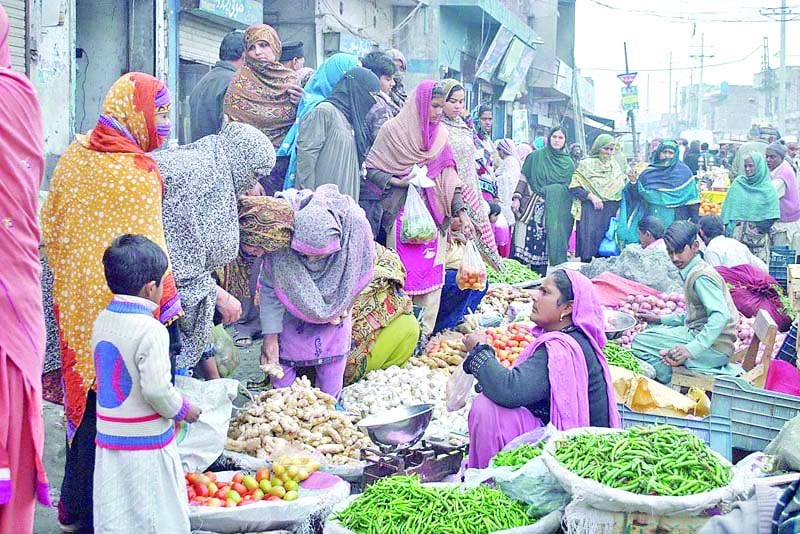
The weekly inflation reading, measured through the Sensitive Price Indicator (SPI), reached an 18-week high of 0.67% due to a rise in food prices in the week ended November 21, 2024.
It was the fourth consecutive week of hike in short-term inflation, according to the official data released on Friday.
Pakistan Bureau of Statistics (PBS) reported that the weekly inflation rate rose 4.92% compared to the same week of last year. The year-on-year reading, however, remained close to a six-year low of 4.16% recorded in the previous week.
Arif Habib Limited reported that the week-on-week inflation of 0.67% had been the highest since July 18, 2024.
The rise in inflation was mainly driven by ladies' footwear, which became costlier by 55.62% to Rs1,399 per pair in the week under review compared to Rs899/pair in the previous week.
It was followed by tomatoes, which shot up 20.72% at Rs190.30/kg compared to Rs157.64/kg a week earlier. Potatoes rose 3.81% to Rs112.45/kg compared to Rs108.32/kg last week. Garlic surged 3.42% to Rs666.57/kg compared to Rs644.54/kg.
Egg prices hiked 3.16% to Rs353.67/dozen compared to Rs342.85/dozen in the previous week, according to the PBS.
Many other essential commodities rose up to 2.30% including vegetable ghee, mustard oil, onions, shirting, beef, mutton, fresh milk and some pulses.
SPI comprises 51 essential items, for which the PBS collects price data from 50 markets across 17 cities.
During the week under review, out of the 51 items, prices of 17 (33.33%) items increased, rates of 11 (21.57%) items decreased and prices of 23 (45.10%) items remained unchanged compared to the previous week.
Recently, Finance Minister Muhammad Aurangzeb expressed his surprise over the increase in food prices, particularly chicken and pulses' prices, blaming middlemen for the hike in the cost of commodities in local markets compared to the downward trend internationally.
Experts have identified several factors that are contributing to the fluctuation in commodity prices. These include a reduction in vegetable production, a surge in population and an inadequate storage capacity for perishable goods, which limits their shelf life and availability during the off-season.
Additionally, the export of crops having less-than-estimated production, such as onions and sugar, has also been cited as the reason for rising prices.
The year-on-year trend depicts an increase of 4.92% in the short-term inflation with ladies' sandal costing 75.09% more compared to the same week of last year. It was followed by gram pulse, which increased 70.95%.
Other essential commodities rose up to 39% including moong pulse, powdered milk, beef, onions, tomatoes, garlic, gas charges for Q1, shirting, mutton and georgette.

1718870162-0/BeFunky-collage-(60)1718870162-0-405x300.webp)
1730504285-0/Martha-(1)1730504285-0-165x106.webp)





1719053250-0/BeFunky-collage-(5)1719053250-0-270x192.webp)









COMMENTS
Comments are moderated and generally will be posted if they are on-topic and not abusive.
For more information, please see our Comments FAQ